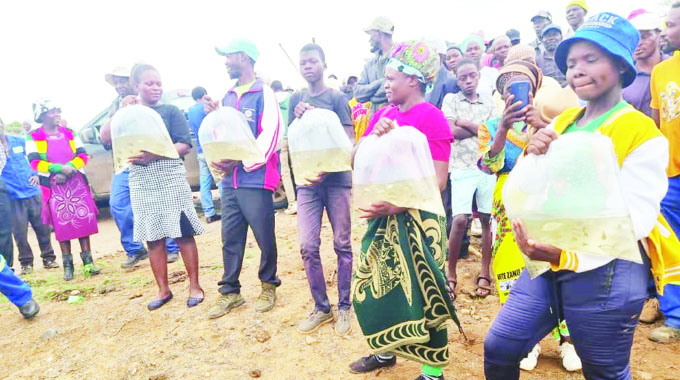Tobacco prices should be fair and attractive

Tendai Guta Correspondent
The new dispensation must be applauded for its effort to motivate farmers of the golden leaf, by increasing the export incentive from the previous 10 percent to 12,5 percent starting this 2017/2018 marketing season.
It is also worth praising the Government for increasing the tobacco input finance facility from the $28 million disbursed in 2017 to $70 million in order to enhance foreign currency inflows from the golden leaf.
During his Monetary Policy presentation last week, the Reserve Bank Governor, Dr John Mangudya highlighted that financing tobacco, gold and other exportable products such as horticulture, mining, tourism, etc., using RTGS funds in banks is beneficial for generating foreign exchange. He added that in line with the tobacco finance order, deserving tobacco merchants shall be granted authority by the bank to use RTGS money to purchase tobacco from the auction floors.
My main appeal to the new dispensation, however, is the upward review of tobacco prices as previous prices dampened the morale of farmers, who as usual expect to reap huge rewards after having toiled for nearly a year to make it ready for marketing.
As we approach the marketing season, farmers’ expectations are that buyers will match quality tobacco with high prices, which has not been the case in previous marketing seasons.
I believe farmers deserve better prices for them to continuously reinvest in tobacco farming. Good quality tobacco crop should be paid accordingly, while poor quality should be bought at deserving prices.
Farmers, however, always complain that without bribing the buyers at the tobacco floors, their crop will be bought for a song despite the quality. Last marketing season and beyond, good quality of the golden leaf was bought for less than two dollars, which is so discouraging. The poor prices will definitely not allow the farmer to settle his debts at the same time, prepare for the next farming season.
It has, unfortunately, become a norm that the highest price for quality tobacco does not exceed $4,99 and lowest quality fetches as little as 10 cents per each delivered kilogramme, an issue which farmers always complain about.
Six dollars per kilogramme and above for good quality crop will be fair for the farmer. Good prices together with the new 12,5 percent export incentive introduced by the Government this year will obviously motivate the farmer to increase production. Increase in tobacco production means more foreign currency for the country.
While there are claims that tobacco farming alleviates poverty in small scale farmers, some seasonal farmers have remained poor even after being in the tobacco industry for many years due to the discouraging prices.
Growing tobacco is not an easy task. The process is labour intensive and, therefore, should be supported accordingly by different stakeholders involved.
The majority of the tobacco farmers are small scale and they grow their tobacco on small pieces of land where family members provide the much needed labour. Their harvest is sold either under the contract system or the auction system.
Under the contract system, they are given the required inputs like tobacco seed, fertilisers and pesticides. Because of the contracts, farmers anticipate better prices for their crop.
But because the prices they can get from their crop is decided by the leaf companies, which grade the leaves and set the price, tobacco farmers are often trapped in a vicious cycle of poverty. In most cases, they fail to pay their loans and they are often left with nothing after having factored in labour costs and other related expenses.
Nothing will unlock the tobacco sector’s potential more than getting rid of the cancer of corruption at the tobacco sales floors where farmers part ways with their hard earned cash in order to bribe buyers so that their quality crop fetches better prices.
Ultimately, the most powerful remedy is for stakeholders to work together for a common cause for the best of the tobacco industry.







Comments